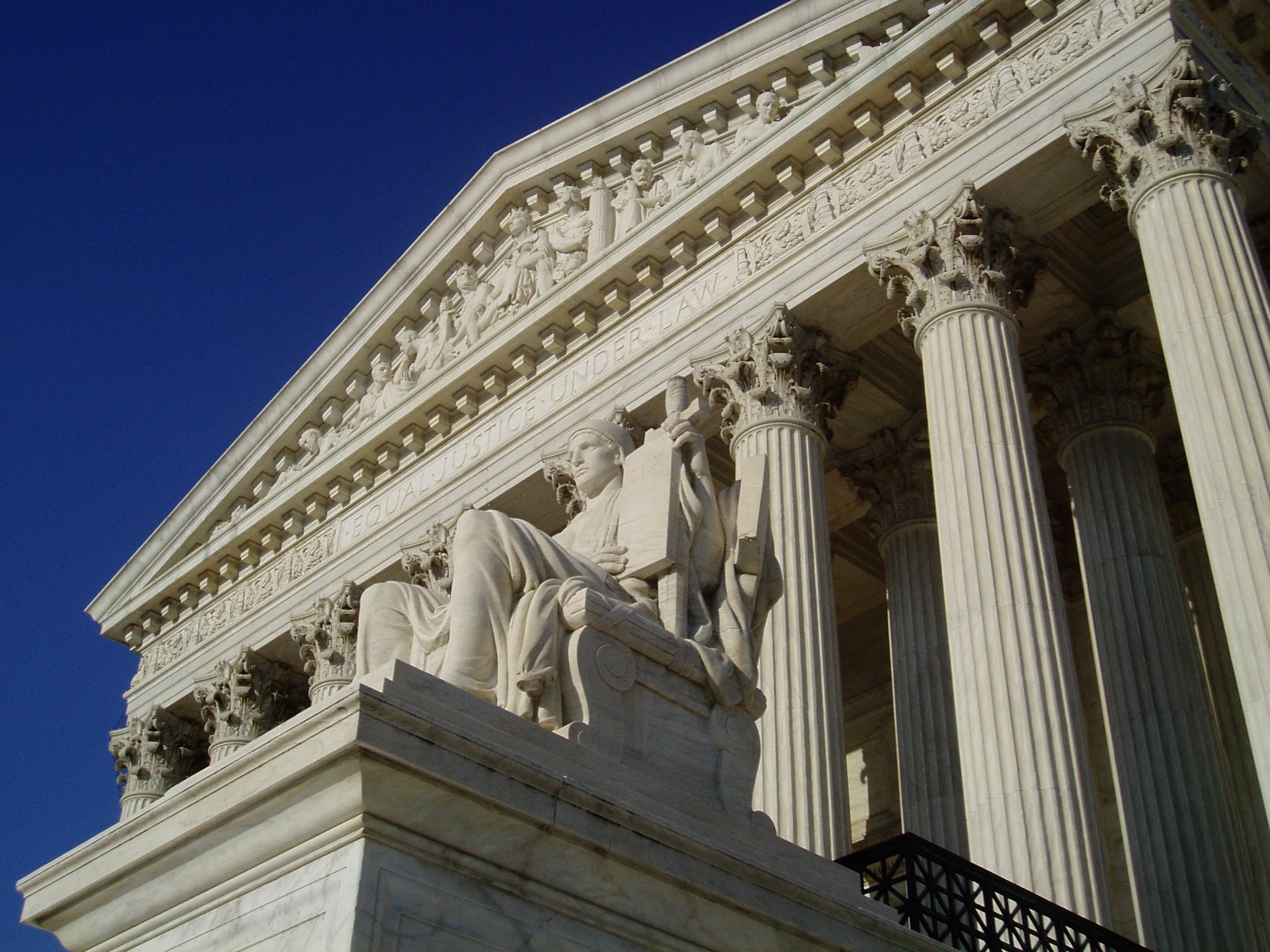Last February, conservative America lost its most celebrated jurist. Supreme Court Justice Antonin Scalia passed away in his sleep while on a hunting retreat with the exclusive Order of St. Hubertus. He was 79 years old. Over the course of his 30-year tenure on the nation’s highest court, Scalia established himself as a champion of the political right, armed with a meticulous brand of legal reasoning, a penchant for silver-tongued rhetorical flair and a burning desire to demonstrate to all that he’s running roughly 50 years behind the rest of the country. His portfolio of decisions, amassed over three decades, serve as a model for strict constitutional originalism — a judicial philosophy that seeks to interpret the Constitution exactly as the Framers would have in the 18th century.
To say that Scalia’s unexpected passing set Washington ablaze would be an understatement that borders on irresponsible. President Obama’s efforts to fill this now-vacant seat have been met with unprecedented obstructionism led by Senate Majority Leader Mitch McConnell (R-Ky.), with nominee Merrick Garland sitting in limbo for a record 216 days (and counting). McConnell’s repeated assertion that the next president will fill the vacancy in accordance with the will of the American people is about as genuine as Joe Biden’s hair. This has nothing to do with democratic values. GOP leadership is terrified about the future of the Court, and all things considered, they very much should be.
An uninformed observer walks into a room with the remaining eight Supreme Court justices — there’s a nine-out-of-10 chance that they mistake it for a South Florida bingo hall or a bridge club meeting. Justice Ruth Bader Ginsburg is 83. Justice Anthony Kennedy is 80. Justice Stephen Breyer is 78. Justices Samuel Alito and Clarence Thomas are both approaching 70. The next president will decisively determine the direction of the court for the next 20 to 40 years, likely filling anywhere from two to four spots (including that left behind by Scalia). The Court’s current balance is precarious — Justices Elena Kagan, Sonia Sotomayor, Breyer and Ginsburg all vote consistently liberal on controversial issues, while Alito and Thomas remain the only strong conservative voices on the bench. Kennedy is a known swing vote. This truly is the GOP’s last stand on contentious issues like abortion and marriage equality.
Finally confronted in the second debate about the oft-neglected campaign issue, Donald Trump made a concerted effort to mention the late justice when asked what qualities he would prioritize in a judicial nominee.
“I am looking to appoint judges very much in the mold of Justice Scalia … [I am looking for] people that respect the Constitution of the United States,” he explained to a crowd of undecided voters. At face value, this makes sense. It seems perfectly logical for the Republican presidential nominee to praise a man touted as one of most influential and brilliant conservative legal minds of our time; however, ever the patron saint of mixed messages, Trump fails to align his judicial priorities with those touted by his campaign apparatus.
In the most general of terms, Trump is a populist. Upon close examination, one will find that Scalia is anything but. He is not a figure that looks after the interests of the everyman, as Trump claims that his administration would do above all else. In reality, Scalia is a testament to why strict originalism is a completely absurd philosophy — he is a man with an antiquated take on what it means to “respect the Constitution,” as well as a history of bananas statements, many of which would not resonate with the average American in the slightest. Everything that follows henceforth is a 100 percent real thing that was written by a Supreme Court justice in the 21st century. Seriously.
On homosexuality (keep in mind: Trump insists he is “much better for the gays”): Scalia carved out a niche as the most profoundly homophobic justice on the Roberts Court, though not without stiff competition from some of his peers. In the landmark 2003 decision in Lawrence v. Texas, one that struck down a state ban on homosexual sex, Scalia authored a fiery dissent asserting that the Texas ban was no different from any other law that prohibits “immoral and unacceptable” sexual behavior, including polygamy, adult incest, bestiality, prostitution and child pornography. Scalia’s dissent in the 2015 Obergefell decision that legalized same-sex marriage nationwide was as backward as that of Lawrence. In it, he writes, “when the Fourteenth Amendment was ratified in 1868, every State limited marriage to one man and one woman, and no one doubted the constitutionality of doing so. That resolves these cases.” For the sake of my word count, I’m not going to even try to touch that; pre-Civil War notions of moral purity aren’t ones of which we should be particularly proud.
On women’s rights (remember: “nobody respects women more” than The Donald): Scalia’s legacy is one pockmarked by a repeated refusal to extend 14th Amendment protections to women in cases of gender discrimination— because that’s not what the founders would have envisioned. In a 2011 interview in California Lawyer, the Scalia explained, “The only issue is whether [the 14th Amendment] prohibits [sex discrimination]. It doesn’t. Nobody ever thought that that’s what it meant. Nobody ever voted for that.” This is a striking example of originalism at its absolute best (or worst, if you possess any shred of rationality).
On minority protections (a community to which Trump’s pitch was “what do you have to lose?”): In the Court’s 5-4 decision in Shelby County v. Holder, the conservative bloc virtually gutted the Voting Rights Act, striking down a key provision that requires localities with a history of racially-charged disenfranchisement to preclear any changes to election practices or procedures with the federal government. The Court asserted that the formula used to determine which districts would be subject to the preclearance requirement was based on outdated data and needed revitalizing — a benign contention relative to Scalia’s claim that the Voting Rights Act was a “perpetuation of a racial entitlement.” Bananas. Totally bananas.
On the issue of affirmative action, Scalia opted to bypass the standard conservative jurist line of reasoning — that the government should stay out of the business of racial classification — and instead kick things up a notch. In an interview concerning the affirmative action program at the University of Texas, Scalia explained that “it does not benefit African-Americans to — to get them into the University of Texas where they do not do well, as opposed to having them go to a less-advanced school, a less — a slower-track school where they do well… [Most of the black scientists] in this country come from lesser schools where they do not feel that they’re — that they’re being pushed ahead in — in classes that are too — too fast for them.” Good stuff.
The panoply of half-baked and misguided beliefs that this so-called “thought leader” has peddled over the last 30 years should be an affront to the basic sensibilities of any member of the electorate, not just those with a differing partisan ideology. Scalia was not a defender of the Constitution — he was one of the last remaining bulwarks against a changing electorate. He was a guardian and impenetrable bastion of 19th-century juro-political vestiges. His approach to legal interpretation was not just dangerous, it was lazy, his analysis the judicial equivalent of forgetting to buy a good friend a birthday gift, and then signing your name at the bottom of someone else’s card. There are a number of conservative jurists in this country that truly do seek to ensure that the law is fairly applied to all Americans, but Scalia was certainly not one of them.
I dissent.
Matthew Ribel is a College sophomore from Chantilly, Virginia





